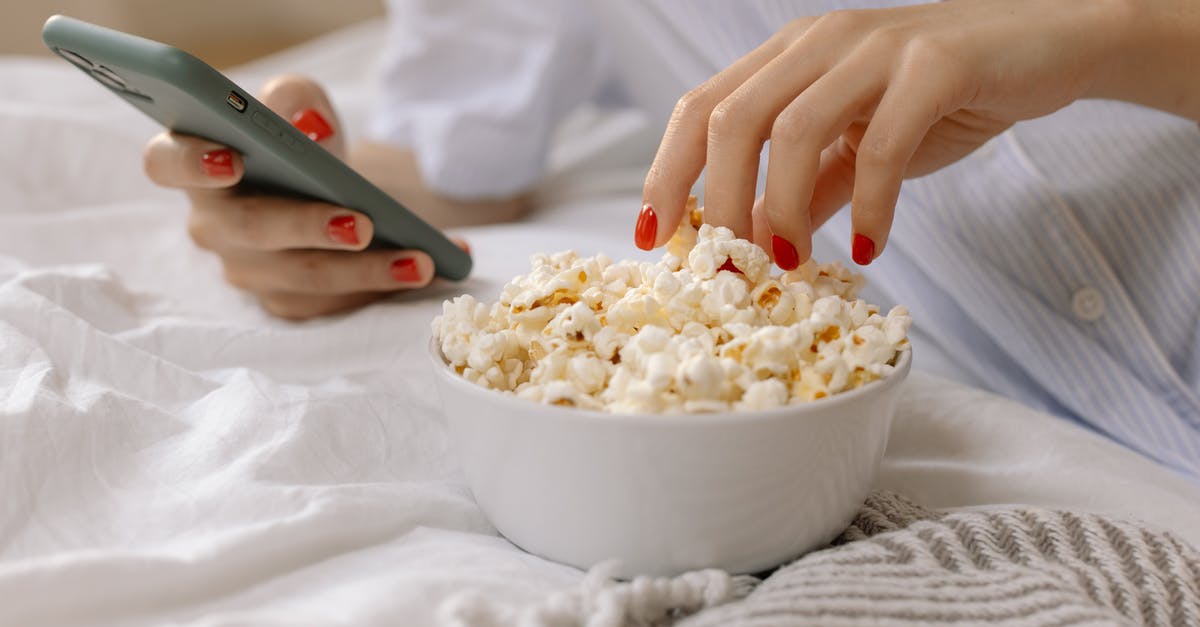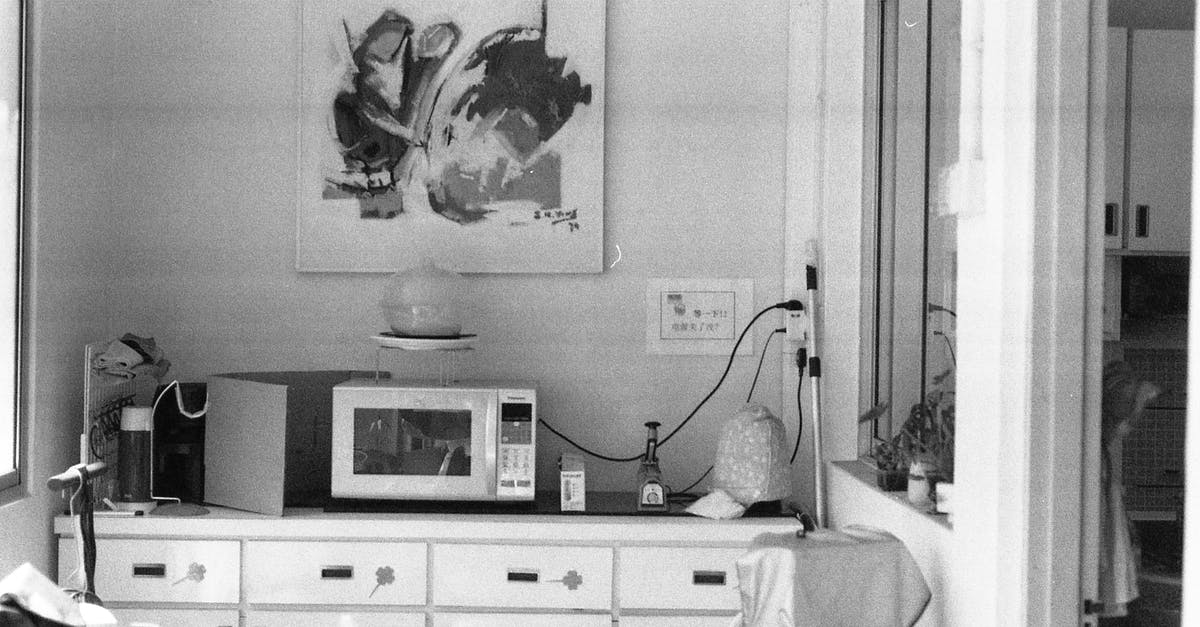Why does microwave popcorn burn?

I've been experimenting some with do it yourself microwave popcorn, and some trouble getting the 'burn time' right has led me to a question that I can't find a good, definitive answer to.
What is the scientific explanation for the mechanism for how popcorn burns? I'm not looking for "Because it gets too hot", but what gets too hot, how does it actually get that way? Microwaves don't just heat everything up (like a stove does), so it's not as straightforward as that. You can put many foods inside of a microwave and massively overcook them without burning. So what's special about popcorn that causes it to burn? I would prefer either a detailed chemistry/physics answer, or a reliable, science-based source. From looking around online, there are lots of semi-reliable opinions on this, none of which agree with each other.
For example, this very old Chicago Tribune article on Popcorn seems to say that it's a problem of "finding" the kernels. Really? Others claim it is the kernel overheating, or the bag overheating, or the oil overheating (yet no-oil still burns, though that may contain some oil from the corn itself I suppose), or gnomes lighting them on fire with matches (Well, no, but it's about as reliable as anything else I've found).
And related to this, what control do I have over this other than time. On a stove, I can reduce the heat; for example, if I'm cooking on the stove with butter, if I cook at '3' I can cook almost all day without burning my butter, while at '4' it browns pretty quickly; so I can choose whichever setting based on that. What in a microwave would be similar (in allowing me to cook the kernels more thoroughly - not just take longer - without risking burning). What ingredients or microwave settings can I control?
Best Answer
I'm going to try to take a crack at this answer, from my perspective as a materials scientist, which is kind of a combination of solid state physics and solid state chemistry.
How popcorn pops is from superheating the water in the kernels until there's enough pressure to break through the outer hull. Then, the starch inside the kernel is able to rapidly expand, cool quickly, and the starch sets into a foam. (FYI: This means that the water actually gets much hotter than it's boiling point inside the kernel)
Microwaves are able to excite (heat) water molecules really well, and water absorbs most of the microwave energy that's entering the food, preventing other molecules present from overheating & burning.
So, once the popcorn has "popped," the water content in the kernel is very low and it's mostly just starch, arranged in a molecular structure that will not melt. (Since it won't melt, the next phase transition that it undergoes is burning - where the hydrocarbons (carbon & hydrogen) in the starch reacts with oxygen to produce carbon dioxide/monoxide and "char" which is essentially just solid carbon.)
Now, the popped popcorn is in your microwave, absorbing energy, but it doesn't have a lot of water anymore. So the energy goes into the starch instead and heats it pretty quickly, burning the starch. Other foods that you can cook for a long time in the microwave probably have very high water content.
As to the oil, to me it seems like a way to more evenly dissipate energy among the kernels. Oil has a higher thermal conductivity than air, which means that it will more easily take high heat in one area in the microwave and transfer it to an area of low heat. So, if one kernel is getting much hotter than another, the oil will be able to take some of the heat from the hot kernel and "give" it to the cooler one. This makes it more likely that all the kernels will pop at the same time; reducing the likelihood that some kernels will pop and burn before some other have even popped. This also helps because microwaves are very directional. You may notice that there are "hot spots" in the microwave, and turn tables exist to try to minimize the influence these have on heating your food.
Let me know if anything doesn't make sense, I don't have detailed knowledge about popcorn but it's a little bit like the plastics I study in grad school!
Pictures about "Why does microwave popcorn burn?"



Quick Answer about "Why does microwave popcorn burn?"
Some microwaves are simply too hot to make popcorn at a responsible, measured pace. If the microwave is too hot, it all pops too fast to keep track of. If the microwave in the office or other shared space is known to burn popcorn, it may be best to find another microwave somewhere in the building.How do you stop popcorn from burning in the microwave?
In order to prevent from burning popcorn in the microwave, pay close attention on the power and time setting. Select the high power setting and microwave for 2 to 4 minutes. What is this? Catching the start of burning is the key.Why does my popcorn keep burning?
You don't shake the pot enough If kernels sit on the hot surface of the bottom of a pan, they can burn; even if only a few pieces get a hint of char, the smoke and smell may be enough to taint the whole batch. Once kernels start popping, give a shake every few seconds. Shake more often as the popping intensifies.Why does microwave popcorn catch fire?
When a microwave oven is operating, the interaction between microwaves and the metal can cause sparks and even flames. Do not leave a microwave oven unattended when microwaving popcorn, since the heat buildup can cause fires.Why should you avoid microwave popcorn?
Research has linked the coatings used in microwave popcorn to health issues. \u201cOne of the ingredients found in many brands of microwaveable popcorn is diacetyl, a flavoring which has been linked to the lung disease bronchiolitis obliterans,\u201d says Anna Taylor, a clinical dietician with Cleveland Clinic.Breaking All the Rules of Microwave Popcorn
More answers regarding why does microwave popcorn burn?
Answer 2
I think most of your confusion comes from the paradigm of water. Water (under kitchen conditions) will not get any hotter than its boiling point.
Oil has no such limitation. You microwave will heat oil well past water's boiling point and all the way up past the smoke point to the flash point of the oil. At the flash point, the oil will actually catch fire.
If you put a bag of popcorn in a microwave on high for an extended period of time you'll see this as actually burned corn.
Also, if a significant mass resting against the paper bag gets above paper's flash point (451 degrees F) it will also catch fire.
My little sister has proven this true time after time.
Sources: Stack Exchange - This article follows the attribution requirements of Stack Exchange and is licensed under CC BY-SA 3.0.
Images: Ron Lach, cottonbro, cottonbro, Wing Yi Yong
